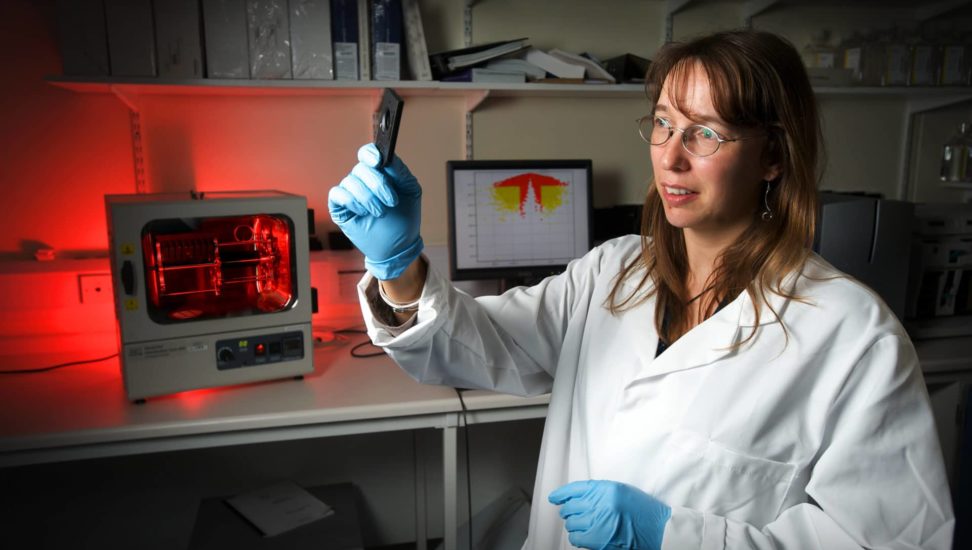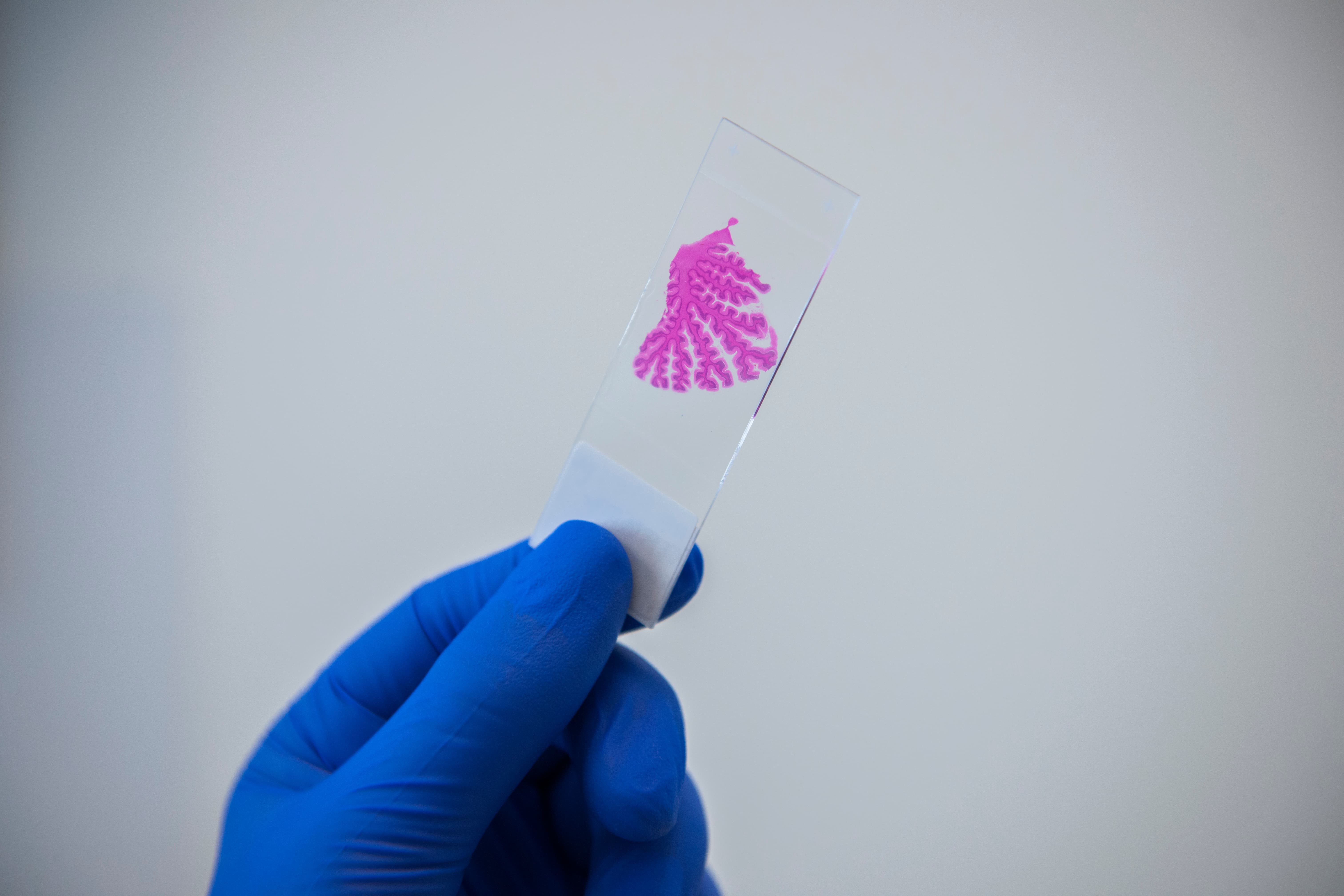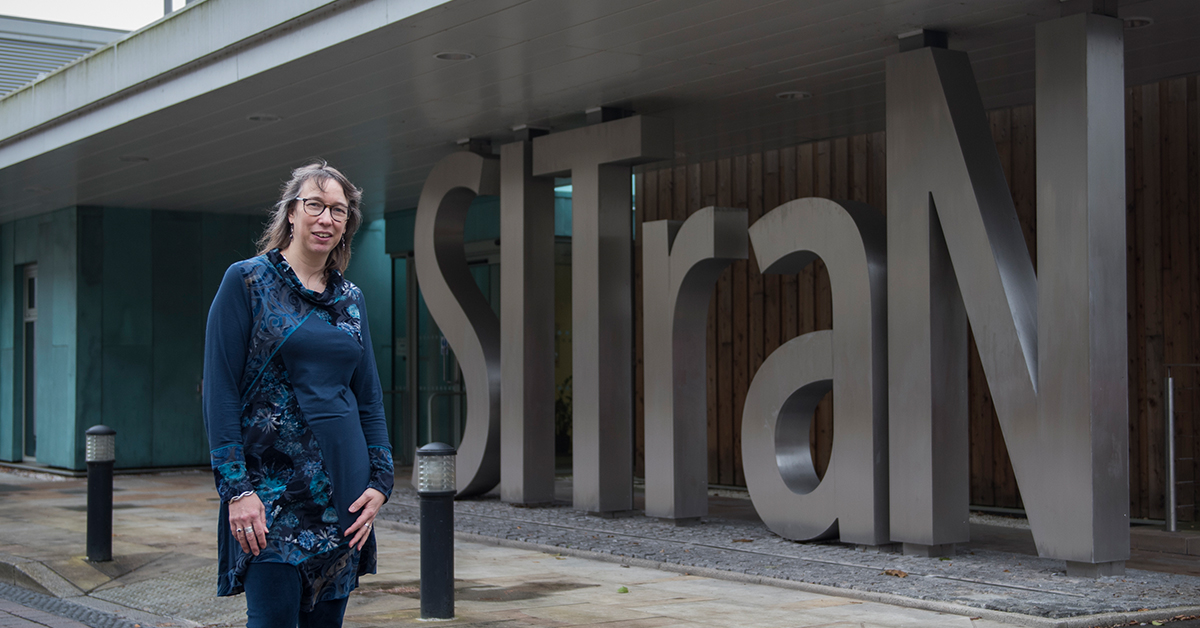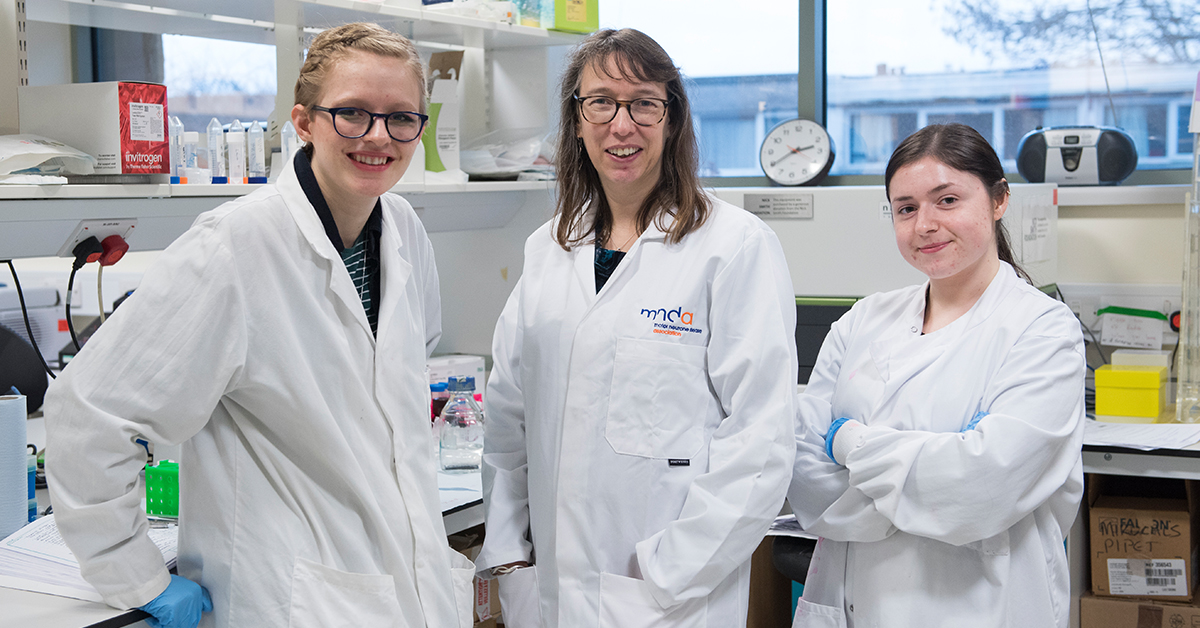As a non-clinical Professor in Neurogenetics, Professor Janine Kirby is involved in some of the world’s most high-profile MND research projects. She is currently finalising her team’s findings on how therapeutic treatments tested in the IMODALS trial can feed into the much larger MIROCALS project.
Patience is a virtue
Talking about in-progress work prior to publishing a full report is always a challenge. You would love to share everything you can, especially when things are this exciting. But research at this level, with so many different teams feeding into each other, really does require proper planning and patience.
All this is complicated too, of course, by the huge upheaval we’ve experienced in the research community because of the COVID-19 pandemic. The ways in which we’re used to working have had to change, and lack of lab access for several months earlier in the year means we have to exercise more patience than we would normally!
But thankfully, despite all the challenges of this year, I am in a position to talk about something really exciting that I am involved in: how the IMODALS trial has managed to increase T-reg cells in patients with MND with no adverse effects.
Doing research on T-reg
Although MND is a neurodegenerative disease, many of us working in MND research have become increasingly interested in how events happening outside the brain and spinal cord could be linked to it. In particular, we’re looking at whether changes in the immune system might play a role in influencing the course of the disease.
T-regs are T-cells which have a role in regulating or suppressing other cells in the immune system. T-regs control the immune response to self and foreign particles (antigens) and help prevent autoimmune disease.
During IMODALS, we’ve been looking at how we can control levels of T-regs in the body by giving patients low doses of Interleukin-2, a type of cytokine signalling molecule. The role of Interleukin-2, if you give lots of it, is to increase T-regs. But give too much and you also get T-effector cells, which can lead to adverse effects. So, we’ve been looking at what level of Interleukin-2 is right for most MND patients.
We looked at two different dosages, 1 milliunit and 2 milliunits. The trial demonstrated that a 2 milliunit dose does increase your T-regs more than a 1 milliunit dose, without being detrimental. And that even at 2 milliunits, you are just getting a selected increase in T-regs. That was key.
This was a small trial and patients were only treated for 3 cycles, but it showed that repeated cycles do seem to be beneficial too. You get an increase in T-regs after the first cycle, and a slightly bigger increase after the third cycle too.
Good news for most
One other key thing we found is that there are some people that don’t appear to respond to Interleukin-2, at least over this 3-cycle trial. Therefore, it may be that this treatment isn’t suitable for everybody. However, we only tested 12 patients in each arm of the study – 12 patients on placebo, 12 patients on the 2 milliunit dose and 12 patients on the 1 milliunit dose. But seeing the increase at the level we did is really promising.
Part of our work now is determining why this increase is happening. Is it down to DNA sequence? Could it be down to an immune response in the body? That’s what MIROCALS, and further work on samples taken from patients in the IMODALS study, will feed into understanding.
Finding time for MIROCALS
MIROCALS is an EU-funded clinical trial based in the UK and France. The UK part of the trials will be funded by the MND Association, with members of Cure Finders playing a key role.
We’ll be working with over 250 patients to see if by combining treatments of Interleukin-2 with the drug Riluzole we can detect improvement in day-to-day activity and survival in MND over a much longer 18-month trial period
Raring to go
We’re desperate to get moving on processing all the samples collected from MIROCALS participants, especially with all the excitement around the findings of IMODALS, but like so many researchers worldwide, we have been affected by the pandemic.
At Sheffield, we had managed to recruit all our patients already and were able to obtain all the timed biosamples that were required. I know that there are other centres that started recruitment later and the collection of biosamples may have been impacted – however, safety of the patients is paramount.
In addition, when we returned to the lab in the summer we were restricted by the University to 20% capacity to allow social distancing, and we are only able to be in the lab for the morning or the afternoon. That creates a significant issue in that a lot of the experiments we do can take several full days of work.
It’s a very challenging time for getting research done – but as soon as we have a chance to make some real progress with MIROCALS, you can be sure we’ll be hard at it. We know that you’ve stuck with us throughout all the ups and downs of this year. Your belief in us and the work we’re doing here is always in the back of our minds as we find new ways to push research forward.
The part you play in this work really can’t be underestimated.
Thank you, from all of us here. – Professor Janine Kirby



